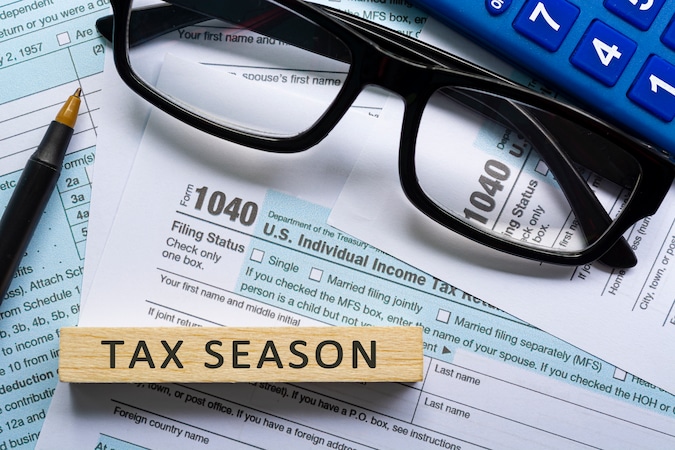
Tax Season Health Insurance Checklist for Easy Filing

When tax season arrives, gathering the right health insurance documents is crucial for avoiding penalties and ensuring a smooth filing process. This comprehensive checklist will help you collect the necessary forms and information to file your taxes correctly.
Health insurance plays a key role in your taxes, and proper documentation can reduce your tax liability or help you qualify for credits. For comprehensive resources on health insurance, visit SelfGood .
Key Takeaways:
- Gather your Form 1095-A, 1095-B, or 1095-C to report health insurance.
- Ensure you claim the Premium Tax Credit (PTC) if eligible.
- Correct any errors on your health forms before filing.
- Deduct eligible medical expenses if they exceed 7.5% of your income.
- Stay organized for next year’s tax season with an efficient record-keeping system.
Why Health Insurance Matters During Tax Season

Health insurance is tied to your taxes, particularly through regulations like the Affordable Care Act (ACA). Accurate reporting of your health coverage is crucial, as it affects your eligibility for credits like thePremium Tax Credit (PTC)and helps avoid penalties if you didn’t have coverage for part of the year.
Failure to report your health insurance correctly can result in costly fines or reduced tax refunds. That’s why gathering the right documents and forms in advance is essential to a stress-free tax filing experience.
Overview of Health Insurance and Taxes
Your health insurance coverage is reflected on forms such as1095-A,1095-B, and1095-C, which the IRS uses to verify your health coverage for the year. These forms ensure that you’ve met the health insurance requirements under the ACA or other programs.
Additionally, if you qualified forPremium Tax Creditsto help pay for insurance through the marketplace, you’ll need to reconcile those credits on your taxes.
- Form 1095-A: Issued by the Health Insurance Marketplace, reporting your plan’s coverage and anyPremium Tax Creditreceived.
- Form 1095-B: Issued by insurers to confirm basic health coverage.
- Form 1095-C: Issued by employers to report employer-sponsored health coverage.
These forms help you claim credits or ensure compliance with health insurance laws.
Tax Credits and Deductions Related to Health Insurance
One of the most important aspects of health insurance during tax season is ensuring you’re taking advantage of any available tax credits or deductions. ThePremium Tax Credit (PTC)is specifically for individuals who purchased health insurance through the Health Insurance Marketplace. This credit helps lower your insurance premiums and is reconciled onForm 8962when filing your taxes.
To qualify for the Premium Tax Credit, you must meet income requirements and have purchased insurance through the marketplace. You’ll receiveForm 1095-Afrom your insurer, which contains the necessary details for claiming this credit.
Additionally, medical expenses can be deducted if they exceed 7.5% of your adjusted gross income (AGI). Be sure to collect receipts and records of any unreimbursed medical expenses, such as prescription medications, doctor visits, and hospital stays. This deduction could lower your overall tax liability, but it’s essential to keep detailed records to substantiate your claims.
Checklist: Gathering Health Insurance Documents for Tax Filing
Having a checklist of necessary documents will save you time and reduce the risk of making errors on your tax return. Here’s a list of key documents you should gather before filing your taxes:
- Form 1095-A, 1095-B, or 1095-C: These forms report your health insurance coverage.
- Form 8962: If you receivedPremium Tax Credits, this form helps reconcile any credits or payments.
- Receipts for medical expenses: If you plan to deduct medical expenses, ensure you have receipts for out-of-pocket payments.
- Employer health benefits statements: Collect documentation from your employer showing the extent of your health benefits.
With this checklist, you’ll have all the information you need to complete your tax filing without unnecessary delays.
Understanding Your Health Coverage Statement (Form 1095-A)
Form 1095-Ais sent to individuals who purchased health insurance through the Health Insurance Marketplace. This form contains crucial information for claiming thePremium Tax Credit. It lists details about your insurance plan, including the amount of premiums paid, any advance payments of the credit, and the months you had coverage.
To useForm 1095-Acorrectly:
- Check the coverage dates to ensure accuracy.
- Verify the premium amount and advance payments.
- Ensure the number of dependents matches your household size.
Accurate reporting of this information onForm 8962ensures you’re properly claiming or reconciling thePremium Tax Credit.
Correcting Errors on Health Insurance Forms
Mistakes on forms like1095-A,1095-B, or1095-Ccan lead to inaccurate tax returns, penalties, or reduced refunds. If you notice errors on your health insurance forms, you should:
- Contact the issuer (your employer, insurance company, or the marketplace).
- Request a corrected form before you file your tax return.
Resolving any discrepancies before submitting your taxes will ensure accurate and timely filing.
Filing Form 8962 for Premium Tax Credit
Form 8962is necessary for individuals who received advance payments of thePremium Tax Credit (PTC). This form helps reconcile the amount of credit you received based on your actual income for the year.
Steps to fileForm 8962:
- Gather yourForm 1095-A.
- Enter the information on Form 8962 to calculate the final credit amount.
- Reconcile any differences between the advance credit and the final amount.
Ensuring the accuracy ofForm 8962is crucial to avoid repaying any excess credits.
Reporting Health Savings Accounts (HSA) on Taxes

Health Savings Accounts (HSAs)offer tax benefits by allowing you to deduct contributions and use the funds tax-free for qualified medical expenses. However, these contributions need to be reported correctly to avoid penalties.
When reporting yourHSA:
- UseForm 8889to report contributions and withdrawals.
- Report any employer contributions to your HSA.
- Include any distributions used for non-qualified expenses, as these may be subject to income tax and a penalty.
Staying within the contribution limits and correctly reporting your HSA activity ensures you maximize its tax benefits.
What to Do if You Didn’t Have Health Insurance All Year
If you lacked health insurance for part or all of the year, you might be subject to theIndividual Shared Responsibility Payment. However, certain exemptions exist, such as financial hardship or the lack of affordable options.
To apply for an exemption, fileForm 8965along with your tax return. This form helps you avoid penalties if you meet the exemption criteria.
Navigating Changes in Health Insurance Coverage
Life events such as marriage, job changes, or adding dependents can affect your health insurance coverage. Reporting these changes to your employer or the Health Insurance Marketplace ensures that your coverage is up to date and that yourPremium Tax Creditreflects any changes in household size or income.
Regularly updating your information prevents any surprises at tax time and ensures you’re receiving the correct credit amount.
Preparing for the Next Tax Season: Keeping Health Insurance Records Organized
To avoid stress next tax season, keep your health insurance records organized throughout the year. Create both digital and physical copies of important documents, such as1095 forms, receipts, and employer statements. This makes it easier to gather everything you need when tax season arrives.
Setting up a filing system for your health insurance documents will save you time and effort in future tax seasons.
Final Thoughts
Staying organized and gathering the necessary health insurance documents in advance will make tax season much smoother. By keeping accurate records, ensuring you claim any available credits, and correcting any errors on your forms, you can avoid penalties and maximize your tax benefits.
Preparing now will ensure stress-free filing next year, so take the time to gather your documents and double-check your information.
Frequently Asked Questions
What is Form 1095-A, and why is it important?
Form 1095-A is provided by the Health Insurance Marketplace and shows details of your health coverage. It’s essential for calculating thePremium Tax Credit.
Can I claim the Premium Tax Credit without health insurance from the marketplace?
No, thePremium Tax Creditis only available for individuals who purchased their health insurance through the Health Insurance Marketplace.
How do I correct mistakes on my health insurance forms?
If you find errors on your forms, contact the issuer (your employer, insurance provider, or the marketplace) to request a corrected version before filing your taxes.
Sources:
- IRS. (n.d.). IRS Health Insurance Tax Information. https://www.irs.gov
- Healthcare.gov. (n.d.). Health Insurance Marketplace Information. https://www.healthcare.gov
- IRS. (n.d.). IRS Premium Tax Credit Information. https://www.irs.gov/credits-deductions/individuals/premium-tax-credit




